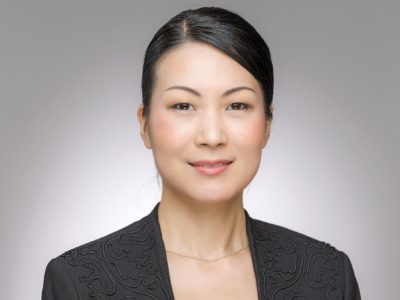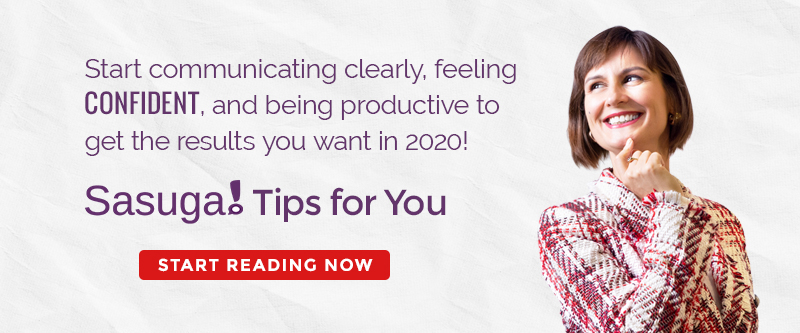– An Interview With Makeup Artist Nobue Doi
What kind of communicator do you want to be?
I want to be a communicator who helps to press people’s buttons to “on”. What “on” means depends on the person. It could mean to be happy, energetic, playful, smart, cooperative, learning, receiving – many things. It’s a button that helps them to be who they want to be.
Sometimes people don’t even know they have such a button. So I want to help them to find it and be able to press it themselves.
People sometimes feel they need to make a big effort to press that button. I use makeup with them to make it easy to press the button.
What is one communication success that you can share with us?
One customer came to me. She was beautiful, had a lot of money, had lots of clothes, was educated, spoke three languages. She was above average. She’d taken lots of makeup sessions with other artists – I was maybe the tenth. She said, “Oh, your makeup is so different.” She was happy with my makeup because she felt that it goes beyond beauty.
What I mean is that, today we see lots of beautiful girls on TV and in social media. We have too much information. But most people don’t really know how to make a beautiful face.
I offer different values. My technique is different. I explain everything logically. I graduated from makeup school, and as I’m applying the makeup, I explain what I’m doing and why, like I did at school.
My school was in Paris. The teachers never criticized our makeup. They always asked the reason behind it. For example, why did I put one color next to the other? I might explain that it was inspired by 1920s Cubism.
I was also influenced by my experience with the aborigines in Australia. I lived with them for a month under the sky. I went to Alice Springs and then travelled to a hidden place where the aborigines lived.
One day, I attended a sacred ceremony. All the women were topless and we had dots painted on our bodies. I respected them, so I didn’t take any photos. It was weird and beautiful. It was like I was part of a painting and part of the earth. I didn’t feel like it was makeup. The Australian desert has brown sand. It’s like a paint color. It’s like paint comes from rocks. I felt I was part of nature. I was so happy.
Also, I grew up in Kyoto. My mum told me that at the beginning of the famous Gion Festival, a 6-year-old boy with a white face has cut the rope for the last 1,200 years. White is the purest color in Buddhism and Shintoism. Before the American influence, we all wore white at funerals.
The famous maiko and geisha in Kyoto have white faces for purity with red to ward off evil spirits. The color has meaning.
So my approach is very different from the Japanese makeup school style. In the Japanese system, you follow the rules and don’t ask why. Successful communication is explaining the why.
What is one communication failure you can share with us?
I have a friend in Tokyo. When we were in Kyoto, she always took care of me and gave me advice. When I moved to Tokyo, she was already there. I told her about my new makeup business and asked if I could test it on her. She said, “Of course.”

I was so happy because I admired her. She was one of the top buyers in a big company. I went to her house to put makeup on her face. And I used the muscle testing technique that I’d developed. This demonstrates the physical impact of the makeup, which is also an indication of confidence.
But it didn’t work at all. I fixed the makeup three times, but still it didn’t work.
I realized that she always had to show tatemae (put on a face). She needed to demonstrate her success and confidence always and wasn’t in touch with her heart. I think that’s maybe why it didn’t work, but I couldn’t tell her. I thought maybe she still needed the face, and I didn’t want to take that from her. Maybe one day she will give it up and get in touch with her heart.
Why do you see that as a failure?
Obviously the muscle test didn’t work. But maybe for her it was successful because she kept her face, which she needed at the time. In the future, I want to try again so that she feels the difference.
What is most challenging for you in communication right now?
To communicate with totally different people with different backgrounds is most challenging. For example, if we have similar experiences, I can talk easily. But people may not use cosmetics or think about how they look. I don’t think putting on makeup is difficult. It’s my passion and profession. But they might find it difficult.
What are you doing to overcome that difficulty?
I’m inviting people to parties! We have a nice time and get to know each other and communicate more easily. Now I’m using makeup to help make people happy, but in the distant future maybe I’d like to do it without makeup.
My mentor is very skillful, chatty, and knowledgeable. Just when she’s there, I feel so calm. In the beginning, I couldn’t talk to her because I didn’t know what to say. We didn’t have anything in common and she was a great, great master. I was just one of the girls. But I felt so happy just being in her presence. When I was 25, I was crying just when I looked at her. It was so weird, but happened many times.
Maybe I can’t reach that kind of level of making people happy just from being in my presence, but I know she exists and that means a lot to me. It’s something to aspire to even though I may never reach it.
What communication skill, resource, or advice would you recommend
to our readers?
Life is not success or failure, it’s supposed to be having fun. Actually, we spend time thinking about problems. Problems are hope.
People often want to tell me their sad stories. Happy stories are few. I want people to recognize that even if it’s painful in the beginning, it’s the sad stories that make you who you are today.
We don’t have to be happy all the time. We should speak bravely about our sad stories. We should talk about sad stories with confidence. A sad story could be a great story in the future. Even if the content is sad, you can have a good mental attitude. When you’re sad or angry, you should be that way with passion. Don’t stay in the comfort zone of sadness. Break out. Embrace the sadness, let your emotion flow, and do it to a fuller level to get to the happiness.
As human beings, we are like a potato – not a beautiful oval because we have bumps and dimples. For example, I’m very good at music (a bump), but bad at reading (a dimple). If I notice that, I might build on my strength of music, but I do less reading. But if I did more reading, maybe I could understand other people better. Or a bump might be that I can love my friend, but the dimple is that I’m strict on myself. Maybe I should be kinder to myself.
When we’re a child, we don’t see the shape of our potato, which is not a beautiful round shape. But when we’re in our 20s or 30s, we see our potato. So we should first accept our bumps and dimples and know that we can change them.
 What else do you want to tell us about?
What else do you want to tell us about?
If you’re a woman, you may wear makeup every morning. I recommend that you think about what sort of person you want to be that day – you want to be a leader or take initiative or you want to support someone or listen to a coworker’s story. Set the goal and then put your makeup on with that in mind.
If you’d like to know more, I hold group events and one-on-one sessions.
Once a month, I have a collaboration, such as with a chiropractic doctor demonstrating muscle testing and me doing makeup.
In one-on-one sessions, I always ask what kind of situation you want the makeup for. If you have a problem or question, I do my best to find out why. For example, you’re nervous in front of people. It could be more to do with the people or more to do with the fact that you haven’t prepared enough. And then we make a better situation together. It’s not just the makeup, but everything around it that leads to confidence.
Find out more about Nobue’s events and makeup sessions here. Or follow Nobue on Instagram here.
* * * * *
Sasuga! Tips For You newsletter – get practical techniques, resources, and inspiration every Tuesday in English and Japanese


